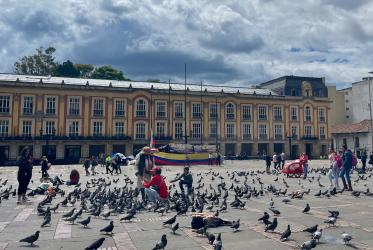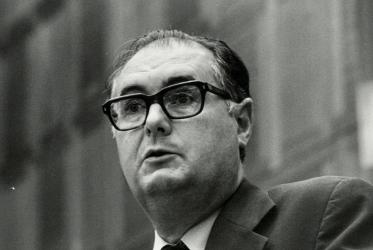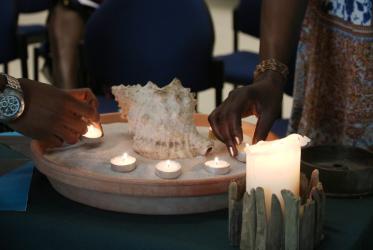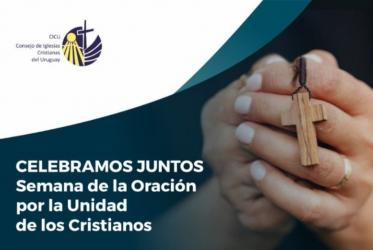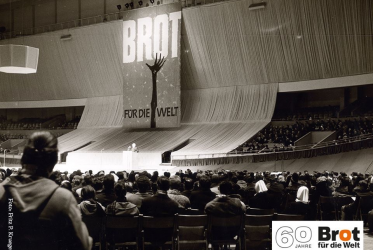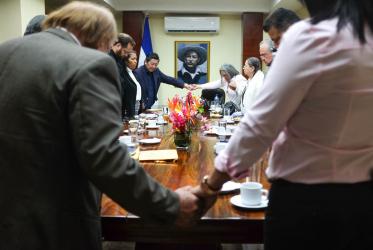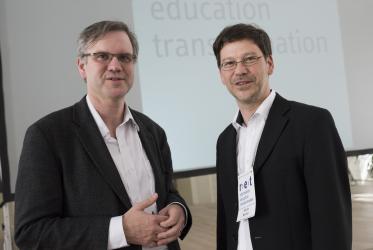Displaying 1 - 20 of 33
WCC mourns the death of Julio de Santa Ana
20 April 2023
Migrants in Argentina find listening ears and open hearts
04 November 2022
WCC extends prayers for Tonga in wake of volcanic eruption
17 January 2022
The cry of the Papuans in Indonesia
14 November 2019
An advocate for family values, called by God
26 March 2018
WCC delegation visits Conference of Latin American Bishops
08 February 2018
In Argentina, stirring journey for human rights continues
01 September 2017
